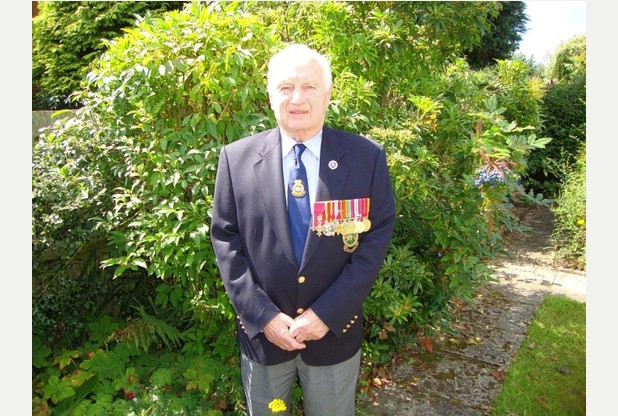
UK News

Les Wills returned to Sri Lanka to reminisce on his time spent there during World War Two.
A SUTTON Coldfield war hero was given a special opportunity to remember a momentous occasion from his time spent fighting in World War Two.
To mark the 69th VJ-Day anniversary (Victory over Japan Day), Les Wills was treated to a trip back to Asia to visit the place where he was based for a short while in 1944.
The 87-year-old travelled to Sri Lanka with his 58-year-old daughter Elaine, who also lives in Sutton Coldfield, courtesy of the Heroes Return programme from the Big Lottery fund.
Les said he very much enjoyed reminiscing and returning to the 'lovely country'.
He said: "It was good to go back to Trincomalee. I went to a little village near where I was based but I didn't recognise much. We also visited Commonwealth war graves in Columbo. It was very moving. They were immaculately kept.
"I found a couple of graves of aircrew from the Indefatigable, though there are a lot more graves in Trincomalee cemetery from the many ships sunk.
"It is a lovely country. We took in some beautiful places such as Galle and Kandy and the seaside. I took some time to stand on the harbour and look at where we anchored and had a moment to myself to think back to my time spent there, it was lovely to reminisce."
Les left school at the age of 14 and joined the Royal Navy in 1943, aged 16. Aged 17 he became a 'Boy First Class' serving on aircraft carrier HMS Indefatigable, sailing from Scapa Flow out to the Far East to join the British Pacific Fleet in Trincomalee, Sri Lanka, the main naval base.
He recalls: "At the time I hadn't a clue where we were going. When we got there we were given the job of launching attacks on oil refineries in Sumatra and Pelambang. The Japanese had no oil reserves and that's why they had expanded into South East Asia.
"The refineries were very heavily defended and we lost many of our planes. The losses were so high they were compared to those suffered by Bomber Command over Germany.
"Nine of the aircrew were captured and sent to Changi prison where they were later executed by the Japanese. They became known as the Pelambang Nine."
Les remembers the moment The Indefatigable sailed to Okinawa as part of an invasion force blocking the Japanese supply route from Formosa and it came under attack from the deadly kamikaze planes.
He recalled: "It was 7.45am on Easter Sunday, 1945. I was on a 4.5 gun crew when we were hit by a kamikaze. I was in an enclosed turret and didn't know much about it but I could hear our guns firing rapidly and I knew they were getting closer. I saw a great smoke cloud rising from the middle of the ship. It looked bad.
"There were 14 killed and 28 injured. But we had steel decks unlike the American ships. They had wooden decks and when they got hit it would go right through the deck and into the ship. Our ships lost four knots with the extra weight but we sacrificed speed for a stronger ship.
"We were a happy ship. Discipline was good. There was never any relaxing of standards. Things had to be right and no matter how hard things were we had to get on with it.
"The metal ship was stifling in the hot sun. At night we had to shut our portholes and the hot air would just circulate round the ship.
"We worked long shifts. The first flights would take off at 4.30 in the morning and would continue taking off till dusk. We would do three days attack with the Yanks, and then refuel."
Now, 69 years on from VJ-Day, Les reminisced on the precarious period in the weeks after the Japanese surrender.
He said: "The Japanese had no word for surrender. We had to be careful everywhere we went as some of the Japanese continued fighting. One pilot was captured on Okinawa on August 15. He thought he was being transported but he was taken up into the hills and shot.
"We picked up 250 Australian PoWs (Prisoners of War) and took them back to Sydney. When we arrived, the Australians treated us wonderfully. We could not praise them enough."
Les came back to Portsmouth in 1946, but stayed in the Navy till he was 30, leaving in 1957 to work for the Fire Service until 1987 when he retired.
He has lived in Sutton Coldfield since 1977 and was married to Bethy for 49 years before she sadly passed away in 2000.
Les travelled to Sri Lanka on a £4,070 grant from the Heroes Return programme. Les is keen to help other local veterans apply for funding to make these trips. Anyone interested can call Heroes Return Helpline on 0845 0000121 or visit www.biglotteryfund.org. uk/heroesreturn.




